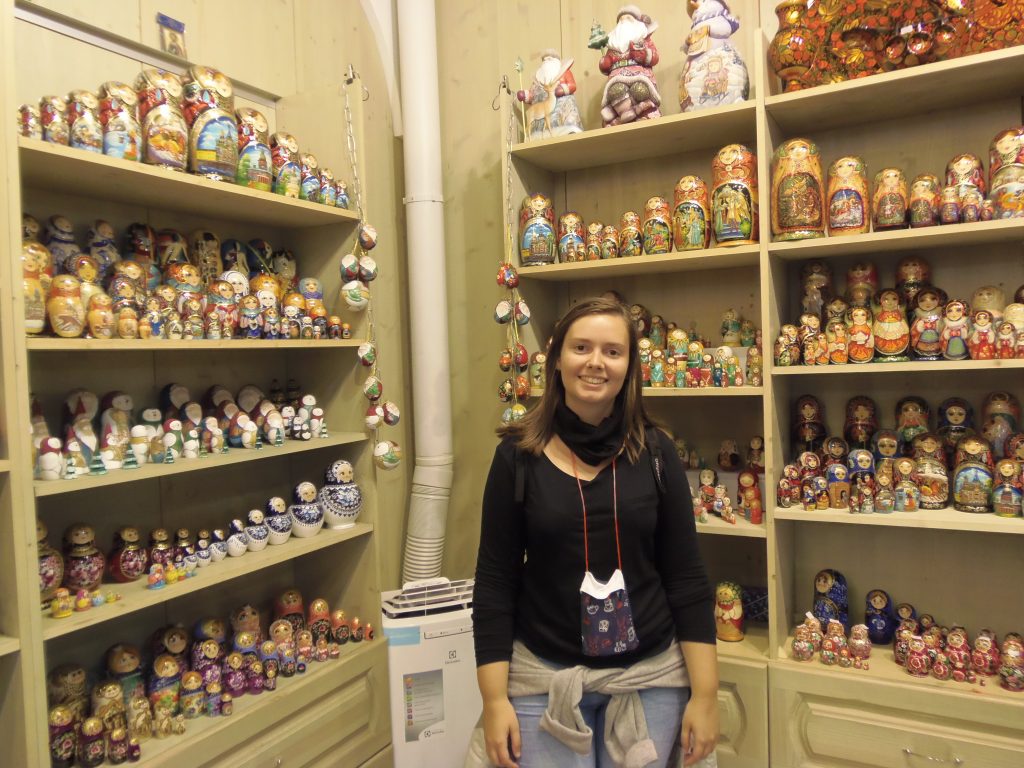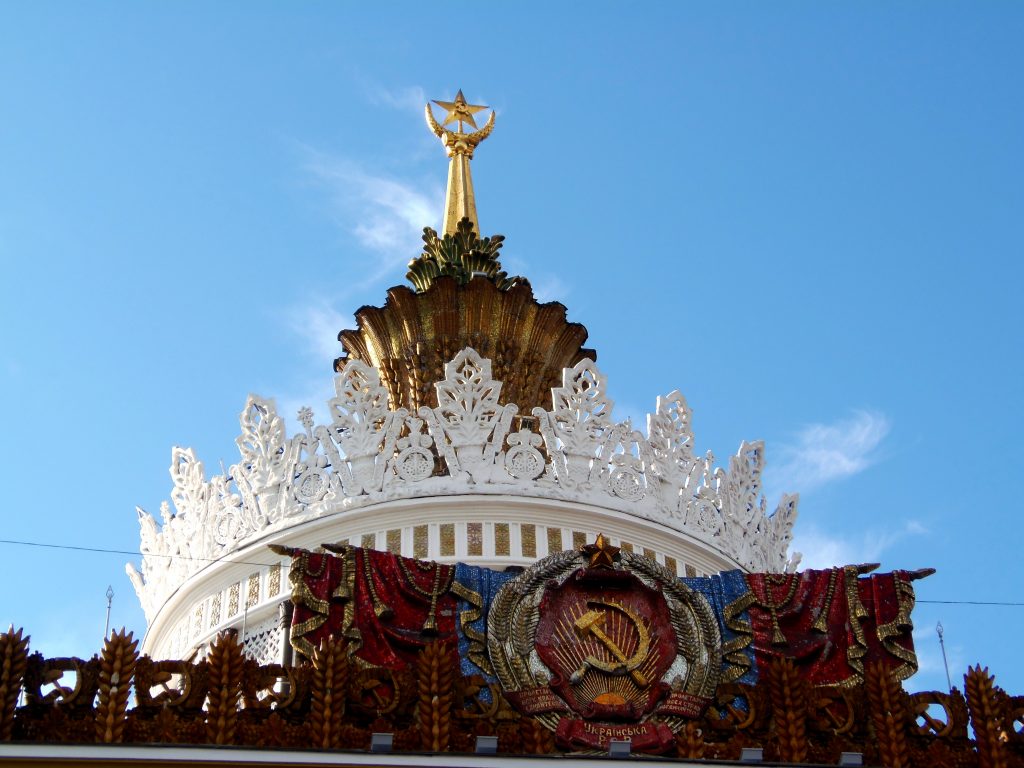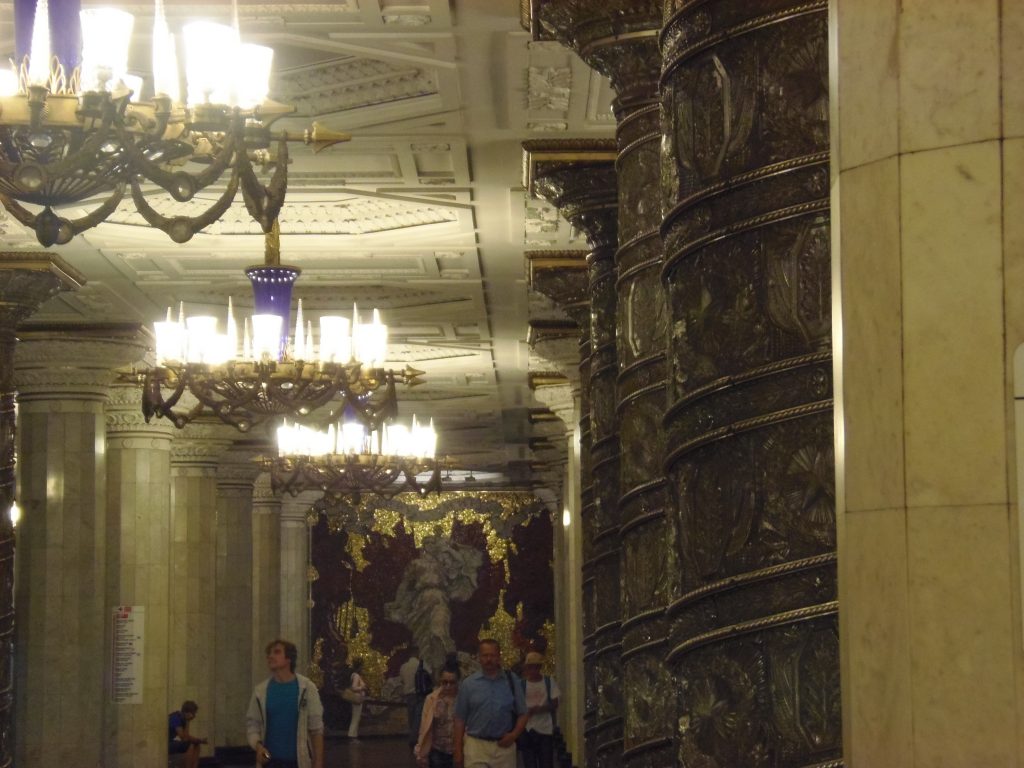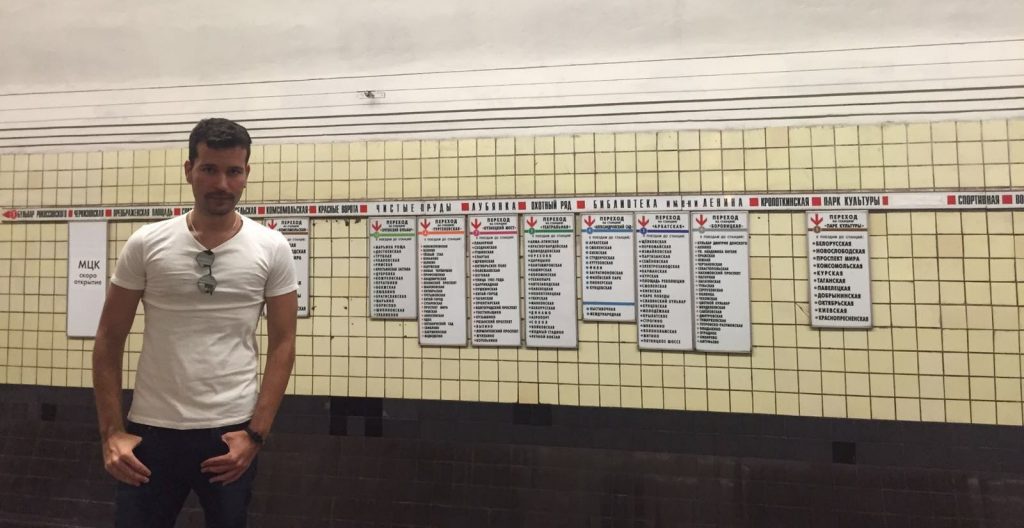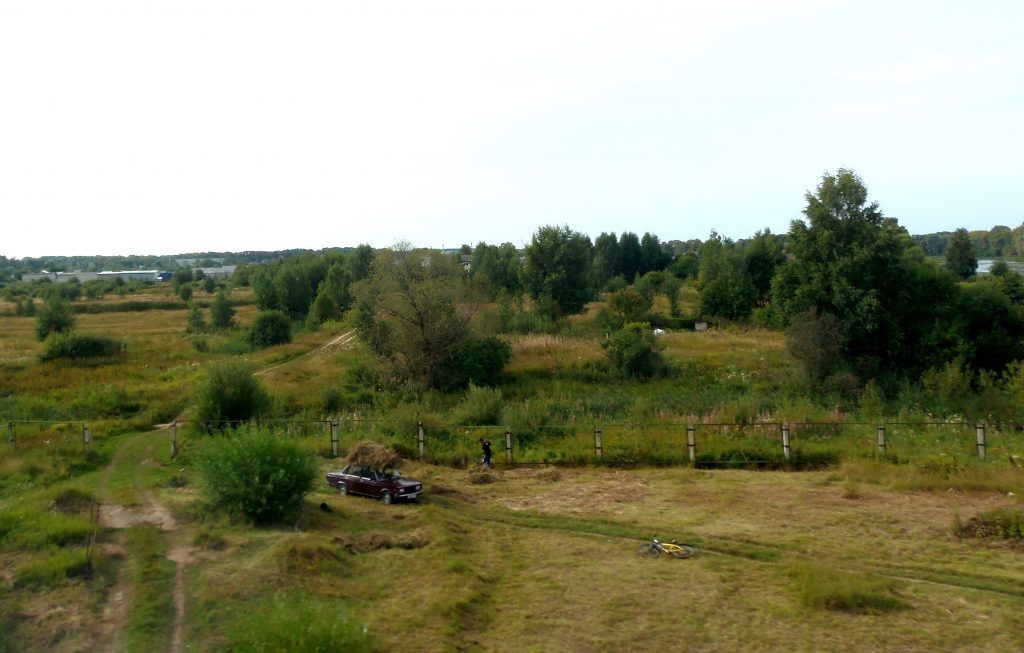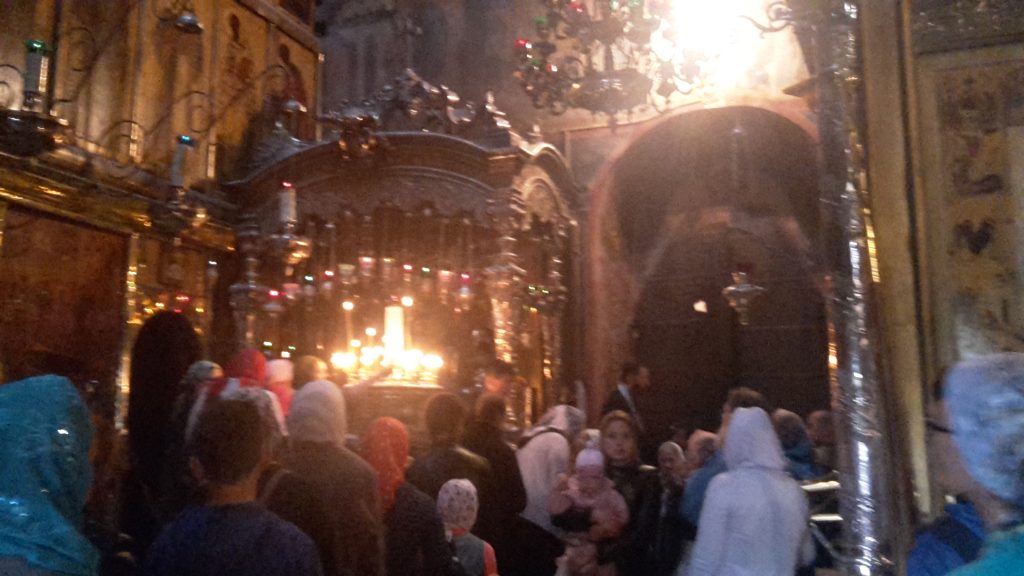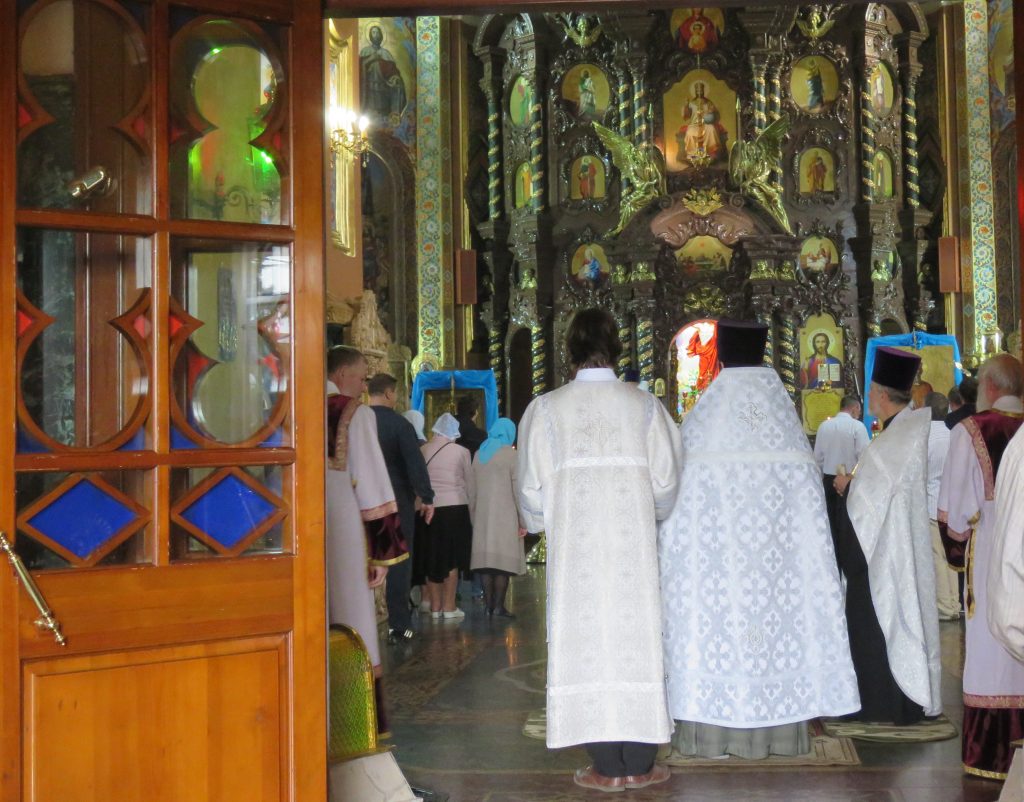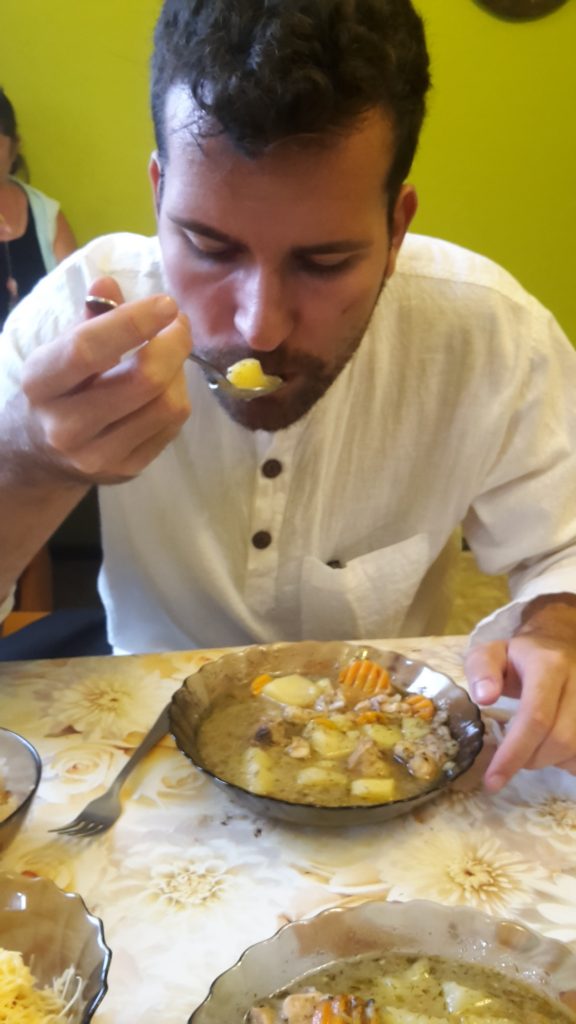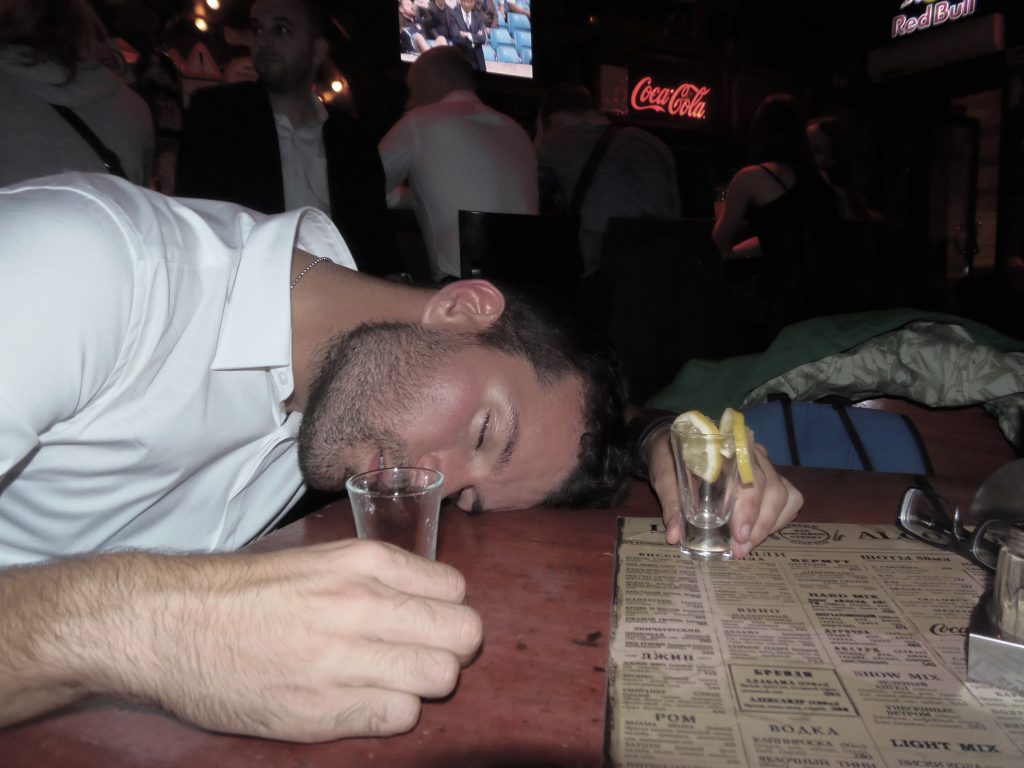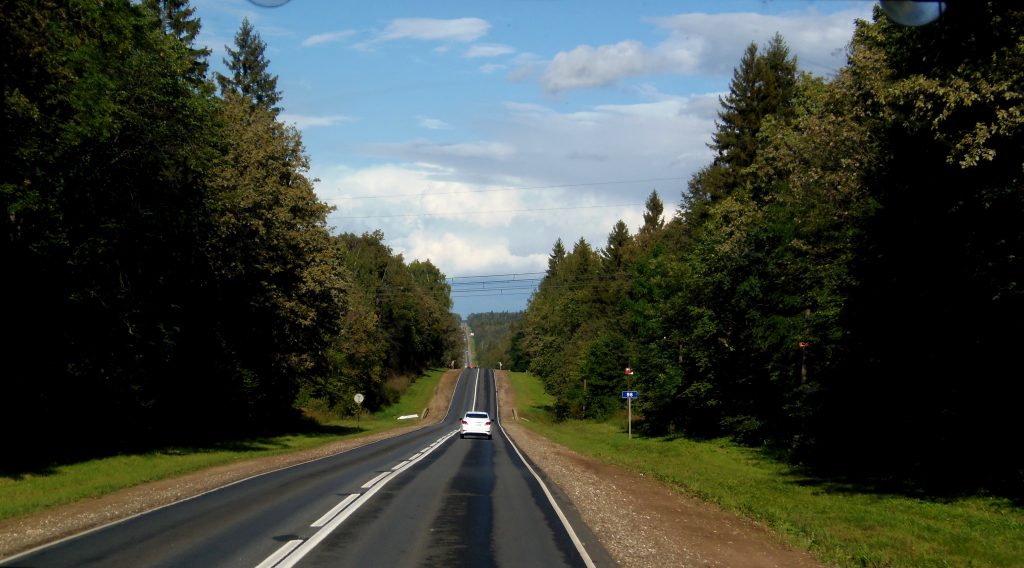#RUSSIA General info. [Visa. Cyrillic. Food & Drink. My impressions]
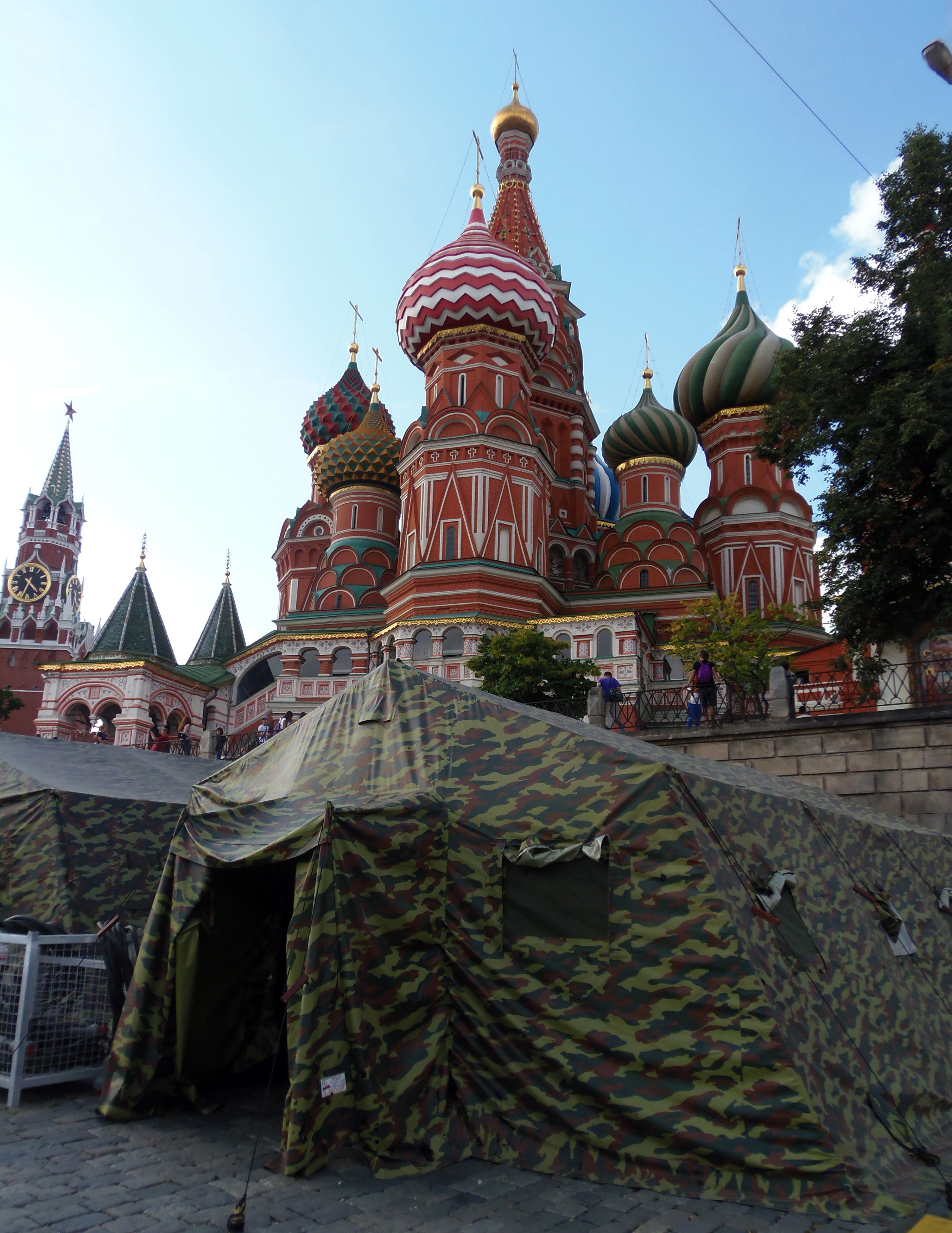
Russia can’t be defined. All my words used to describe it aren’t enough to express the meaning of this country, the biggest one in the world and which has been on top of international affairs. Under the sight of uncountable prejudices about Russia, a warm heart is opened whose best feature would be “protector”.
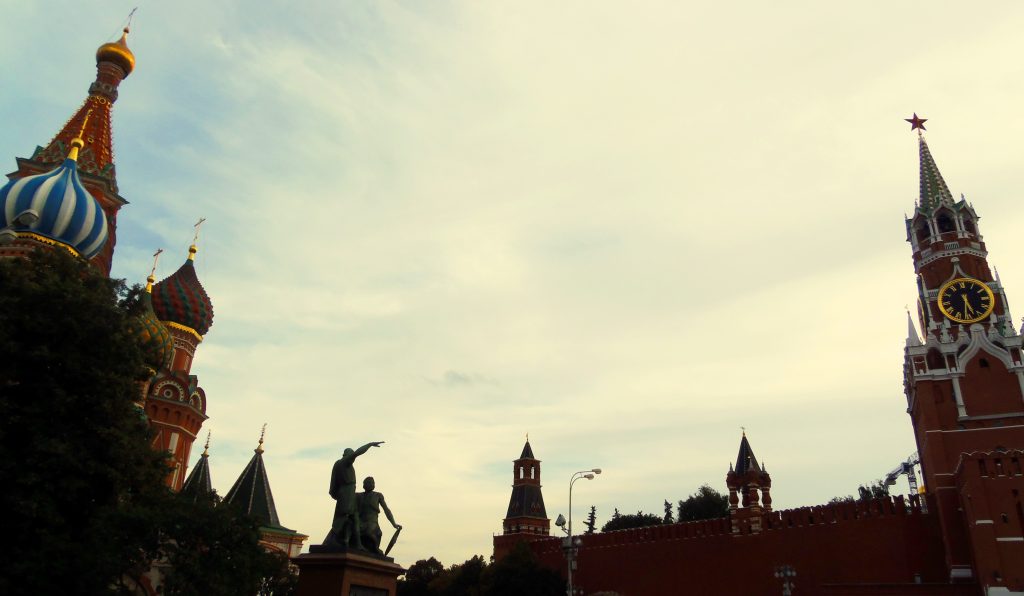
I was long time hoping to visit Russia, one of the key countries for every traveller or people keen on culture. Living in a world conquered by the euroamerican culture, Russia and its slavic sphere is the other big culture that through History has played an important role in Europe. It has always been a big country and it will always be.
As a result of the Crimea Ukrainian-Russian conflict in 2014, separatists conflicts in Donetsk and Lugansk, the downed Malaysia Airlines flight, and the alleged rejection of Western values, the media mass were at “media war” against Russia. The warned us that it was not the best moment to travel to this country, but we deeply loved Russian culture and we were willing to discover a beautiful country and a kind society, and by the way, to practise a little my Russian, which I learned some years before. So I phoned Irene and told her “Are you coming with me to Russia?” and soon we found out it had been one of our best trips.
Matriuskas everywhere. Shop in Nevsky Prospekt, Saint Petersburg
But are you travelling by yourselves? The two of you alone… you should be in a group! Russia is very dangerous, for you to arrive at the airport, catch the tube at night, distances are so big, everything in Cyrillic…” ERROR. It is not that you can travel without an agency, but it is BETTER to go without it. Russia IS NOT dangerous at all, and if you can read Cyrillic or you prepare well your trip, there is nothing to worry about.
In this first trip we visited Saint Petersburg and Moscow, the historical “heart” of Russia. In addition, we went to the towns of Sergiev Posad and Rostov, inside the “golden ring” of Moscow. We also made a stopover in Riga, Latvia. It all well served to make an approach to the Transiberian, one of my dreamed trips, and which I would do the following year, as I was shocked by the beauty of Russia.
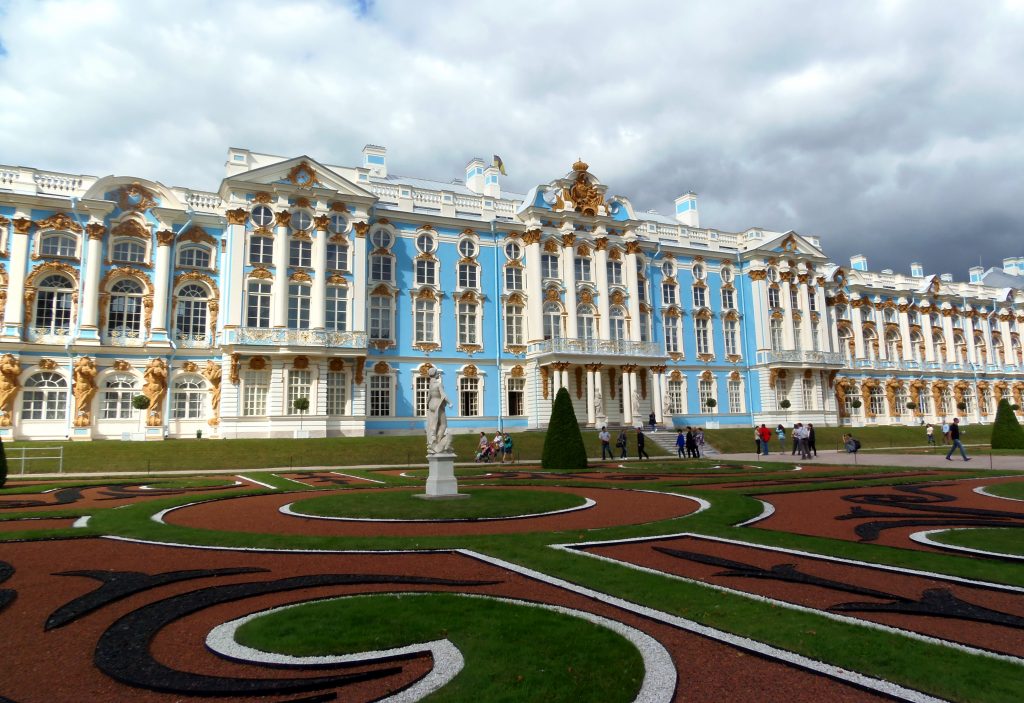
Russia’s origin goes back to the Kievan Rus, a State founded by Viking descendants. In the X century, Christianism was adopted and they considered themselves as descendants of Bizantine Orthodoxy when Constantinople fell (Moscow was named the “Third Jerusalen” of the world). Before that, they were divided into several Principalities, and the gravity center of the Russians from Kiev to Moscow and its surroundings (the golden ring: Yaroslavl, Rostov, Vladimir, Suzdal). During this time, Mongols and the Golden Horde were causing problems to the development of Russian people, who were under overrun by them. Moscow was the most important one and after Kazan defeat succeed to reunify, get the independence and expand its territories. Later on, the Russian Empire (XVIII century) conquered the whole Siberia reaching China and owning even Alaska in America, and in the West until Poland. It won’t be until the begginings of XX century when the Transiberian was built to better communicate the country.
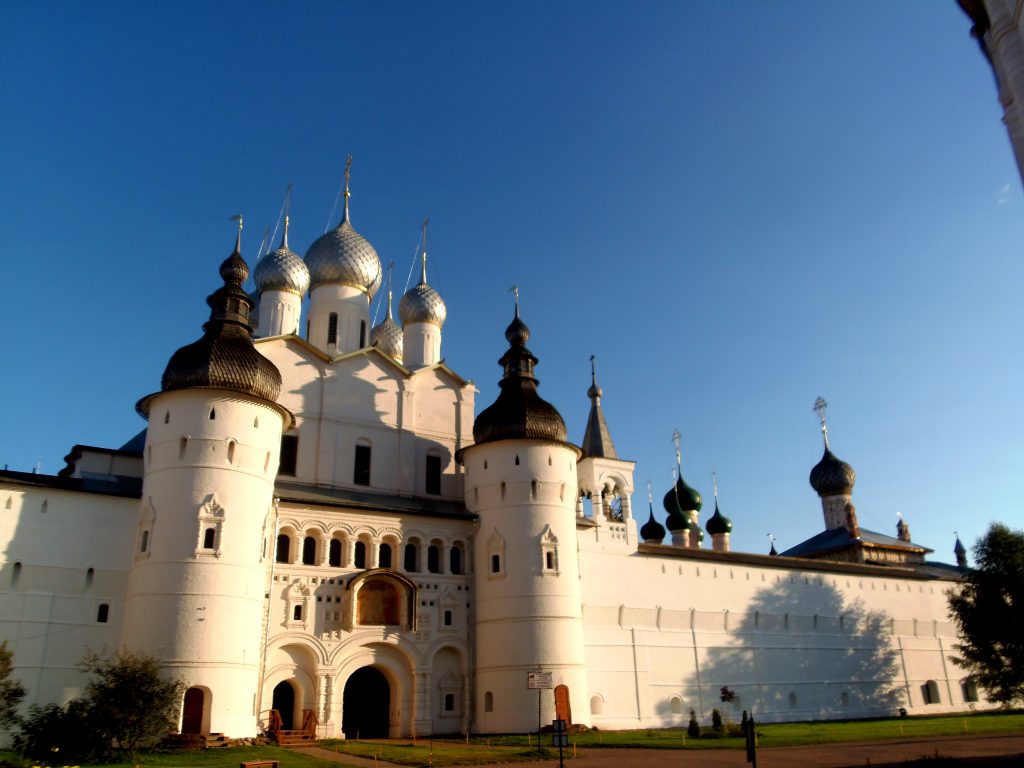 Rostov Kremlin, one of the most important and beautiful towns in the golden ring.
Rostov Kremlin, one of the most important and beautiful towns in the golden ring.
Russian Revolution (from 1905 to 1917), made the first socialist country a reality. It was the USSR (Union of Soviet Socialist Republics) created in 1922. This state, as loved as hated, was on the top of all international affairs during Cold War, after becoming victorious against the Nazi in World War II, and it was the opponent superpower to the United States of America. Once USSR collapsed in 1991, it split up in numerous independent republics such as Moldova, Estonia, Georgia, Ukraine or Kazajstan, to name a few. Established in capitalism, it experienced the first traumatic years with a high inflation, poverty and alcoholism, until it recovered and nowadays, it holds a strong place in the world order as a world power, to a great extent thanks to its energy and combustible.
Communist symbol in VDNKh (Moscow).
Today, “Russia” is a federation of republics (official name: Russian Federation), being Russia the largest one. Other republics are very well known, like Chechnya, Tartaria or Tuva. Russia is enormously rich in culture and we could spend a whole life discovering every part of the country, different peoples and nations (from Yamal-Nenets to Yakuts, Maris, Kabardino-Balkarians, Kalmukians, Tuvans, Bashkirs and lots of minorities like the Uzbeks, Armenians, Jewish…), a stunning nature and wildlife, a unique language, one of the best artistic heritage (painting, literature, dramatic, musical, architecture…), an incomparable historical symbolism, and traditions and lifestyle that make Russia a world to discover.
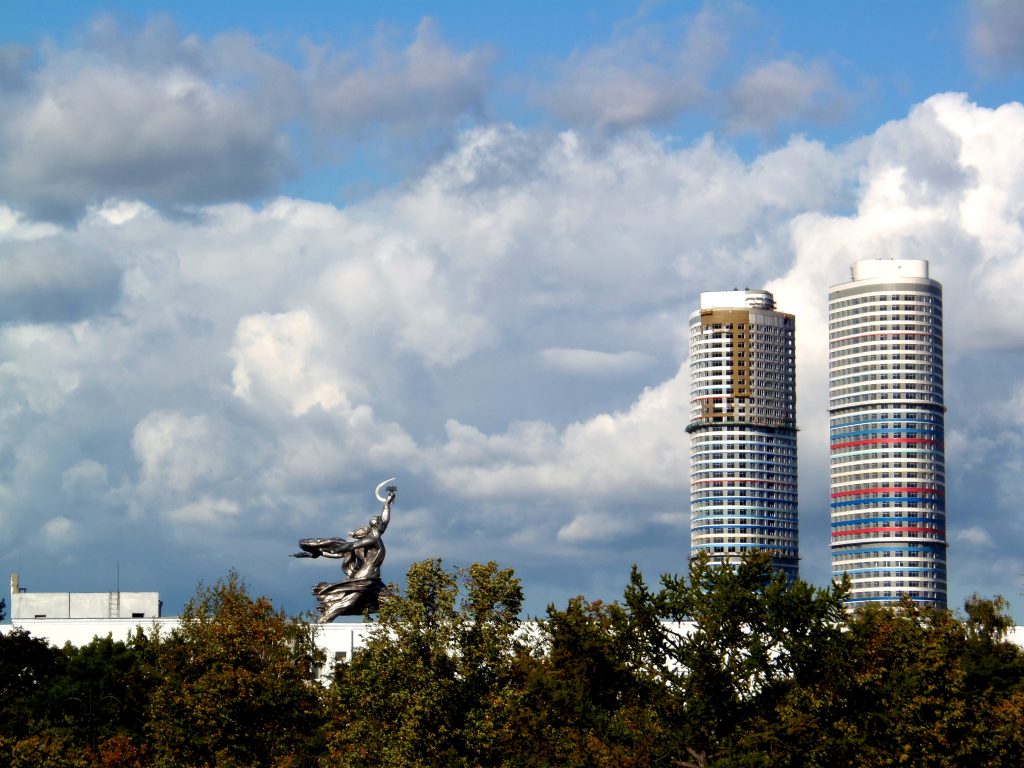
Area: 17 125 246 km2, the biggest country in the world.
Population: 146 020 031 inhab.
GDP per cápita: $ 17 687.
Language: Russian. Few people speak English in cities, and hardly anybody out of them.
Time Zone: there are 11 zones, from UTC+2 to UTC+12. You must be careful not to be distracted and check the part you are travelling to. If you move inside Russia, be careful when you change your time zone. In short, Moscow and St Petersburg share time zone; and the “official time” for trains and general things, is the Moscow time.
How to get the Russian Visa
If you want to travel to Russia, you must have a passport and visa.
Getting the Russian visa is not difficult, but kind of annoying due to the amount of documents you need to submit, and the requirements it must have. Contact the nearest Russian Embassy in order to follow the right steps. Remember that it is convenient to have planned the trip before apply for your visa.
First of all, you must get your visa support. It is an invitation from a touristic company, its price is between 12 and 20€, depending on which you choose. You can also try free websites in the Internet (I didn’t trust them, but you can try). You must write your exact date of the trip, personal data and which cities you will visit and where you will sleep. If you are going to sleep in a train (night trains are quite useful), just write or click the option “Transiberian route”, for instance. Once you have paid, you will immediately receive a pdf with the confirmation, stamp and codes to write in the application form of the Embassy.
You will also need a photo in a white background, your passport with minimun 6 month validity since your depart from Russia, and a travel insurance that covers your stay in Russia. The latter is the most complicated thing to get, (not because it is hard to have an insurance, but it does need to appear the exact dates of the trip, and it must be written that it is valid in Russian Federation, literally. And many insurance companies give you problems with writing this just like that and they only give you a standard certificate, which it is not enough for them). It has to be very clear.
After that, you have to fill in an application form, available at the Embassy of your country. You must choose tourism or tourist. And you will find several questions about personal data, dates, and cities again.
You will need quite amount of time to do all this, so, do it with enough time prior to your departure.
And last but not least, bring a copy of every document with you (visa support, passport and insurance) just if you get robbed or miss something.
Cyrillic alphabet
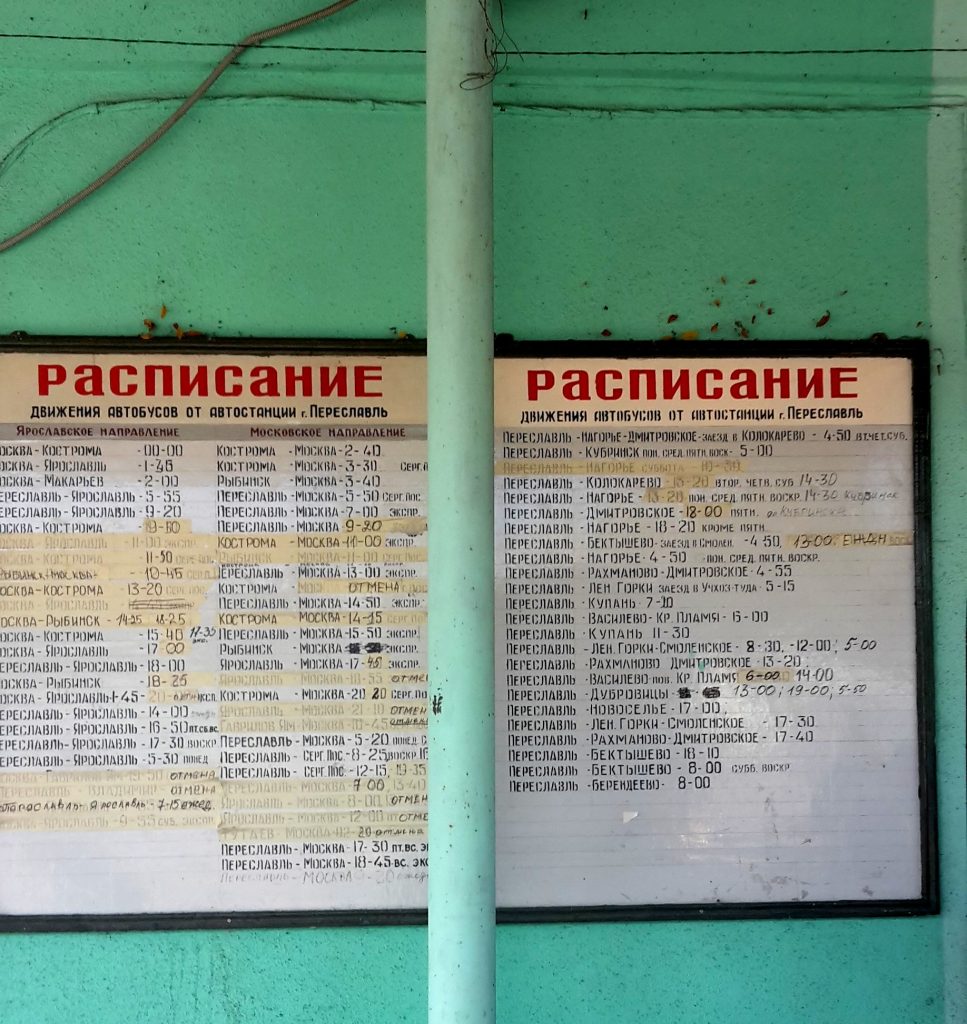
Russia uses the Cyrillic alphabet for its language. It is very useful to know, at least, how to read it. By knowing the meaning of every letter, you can guess lots of words, as Russian imports many words from the English.
Russian people appreciate the interest for their country and language. Many times a single word in Russian will make them smile and you will be treated good. If you think that everybody should speak English and get annoyed if they don’t understand you, you will only get to be ignored or even bad treatment. In particular, people with me were nice. Once I had spoken few words in Russian they took for granted I knew their language by heart! and I had to tell them to repeat more slowly!
Moscow and St Petersburg underground/tube
The tube in Russia is like the people’s palace. Built in communist times, they are true touristic attractions, as they are unusually beautiful and decorated in luxury materials. Big lamps, mosaics, marble, glass and golden colours fill the tube stations in Moscow and St Petersburg. In addition, Moscow’s one holds its own legend: that of a secret line acting as a bunker if a nuclear attack happened.
Avtovo station, St Petersburg.
Catching the tube is very easy, but there’s a little difference: stations are named differently depending on which line it serves, even if they are “the same”, as in Europe occurs. For example, one station can be named “Arbatskaya” for the blue line, “Biblioteka Imeni Lenina” for the red one, and so on. Although this may seem messy, I think it is kind of useful and better than what we have in the rest of Europe, as it is more accurate information of where you are.
You’d better learn to read Cyrillic.
For St PEtersburg’s tube you have to buy at the office coins to pass the crossing; for the Moscow’s, you just buy a paper card with the number of journeys you want. I think it is very safe. There are lots of policemen, ladies that are just in cabins keeping an eye on the mechanic stairs, or surveilling you, there are random luggage inspections (by scanning)… so don’t be scared. In fact, I think it is a not-to-miss experience: to walk though these crowded places while you are watching communist symbols, posters in Cyrillic, musicians playing instruments…
Russian people
Highly stereotyped, my impression was that Russian people are just like us. I would describe them as pragmatic people, cautious at first treat, but very protective and kind when you get in touch with them.
Farming near Tver’
Are they grumpy? It is normal that in big cities like in St Petersburg or Moscow with thousands of passengers in the tube and long queues to buy tickets, a seller may find a real drag to cope with a distracted tourist and non-speaking Russian. First off, they are pragmatic and serious, they go to do their job quickly and without worries, and they let you find your way on your own. But, if you excahnge some words with them and you are kind, you will receive the same treatment. Even if they feel that you truly love Russia or you are lost, they will go with you and help you at their best. They have even given me their number if I needed anything “not only in this city, but in the whole Russia”.
In short, at first glance they may look like distant and indifferent, but a Russian that trust you will treat you as his best guest.
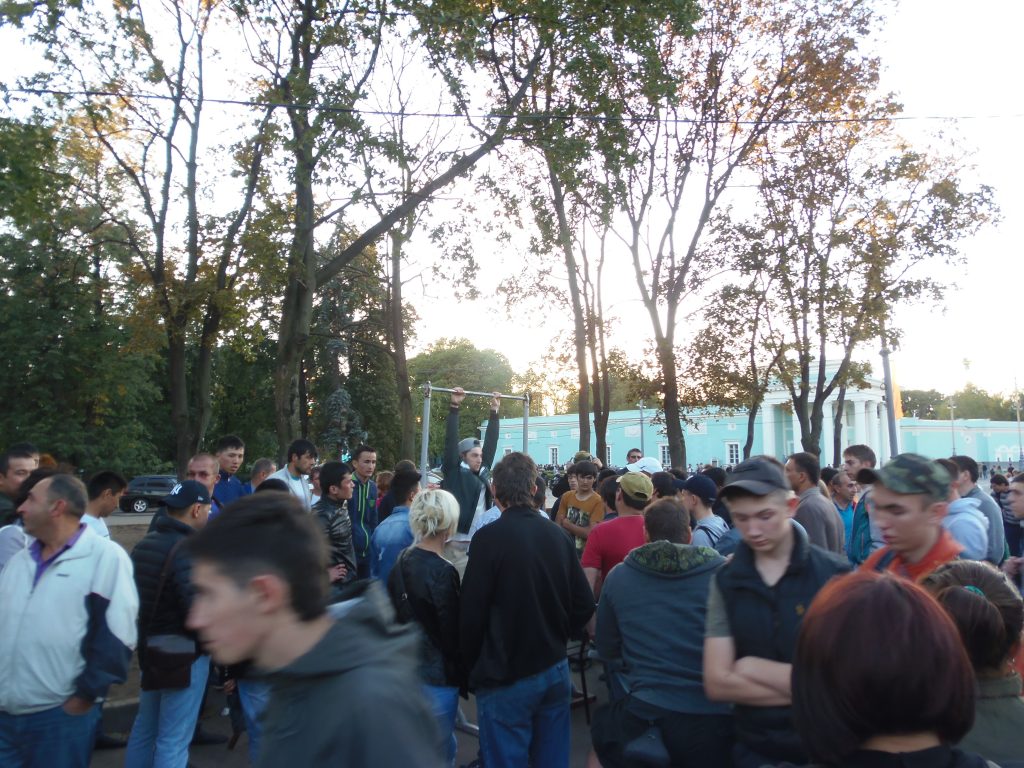
We had read that we should be careful with police, as many times they ask for all type of documents and can cause problems to tourists; or some other people who pretend to be policemen to steal your passport. We didn’t experience anything of that. We didn’t have any problem at all. In fact, I spoke with policemen several times to ask for directions and they were very kind to me.
We also could check how Russian society is more and more believer and churches are almost full. There are always people walking in and out of the churches, before or after going to work, shopping… to pray some minutes. In Orthodox churches there are no pews to sit, and people stand up the whole ceremony. Moreover, women must cover their head with a scarf (don’t worry, there are many ones at the entrance), and men must take off their hat.
Religion plays an important role in Russia. Church in Sergiev Posad.
Food and drink in Russia
Food in Russia doesn’t enjoy fame and recognition, and the truth is that it didn’t delight us. We mostly ate buns: buns filled with potatoes, buns filled with meat, buns filled with bothe potatoes and meat, buns filled with buns, buns filled with onion, crusty buns… everything was fried and wrapped into a bun. It was like the substitute of our sandwiches.
For more elaborate dishes, soups are very popular (we tasted soup with yoghurt and pickle), also meat with potatoes (it was mostly just fat coat in batter), and some other typical dishes like a stew of guts/bowels (I think it was chicken or rabbit), containing lungs, kidneys, brains… There is also a wide range of cold meat of lots of animals: pork, beef, lamb, beaver, deer, razorback, reindeer, bear… And I think the most typical dessert is a sort of a marshmallow of different colours and flavours, you can also find them covered in chocolate. We didn’t like them either, they tasted like plastic.
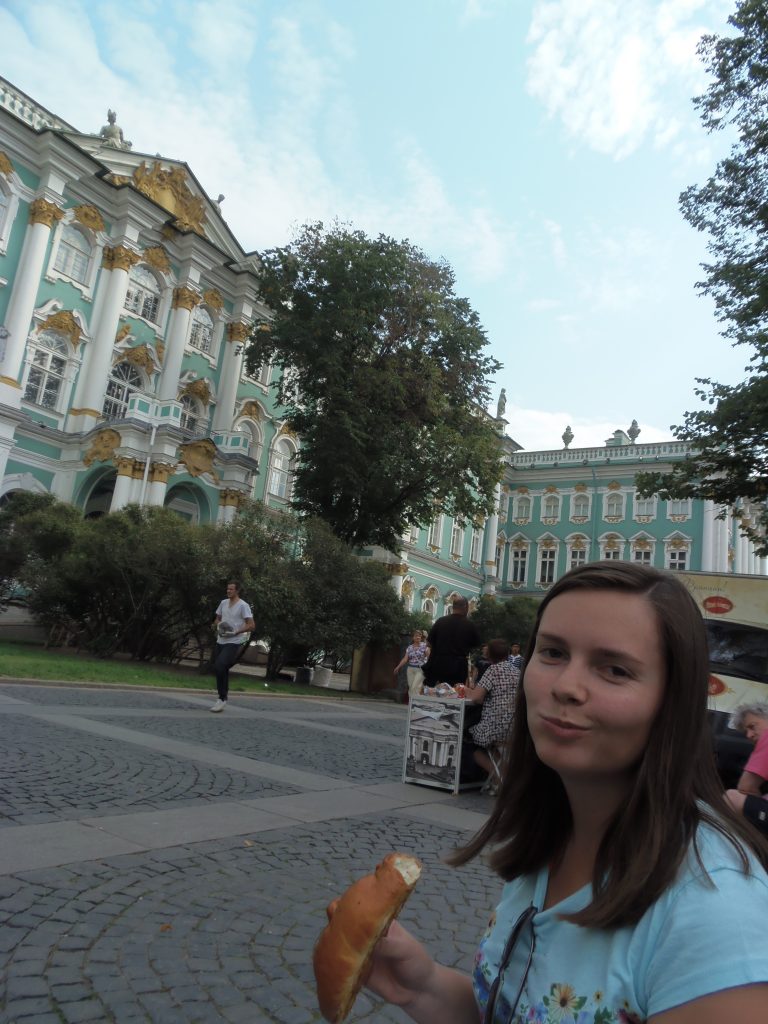
Irene having a potato-filled bun next to the Winter Palace in St Petersburg
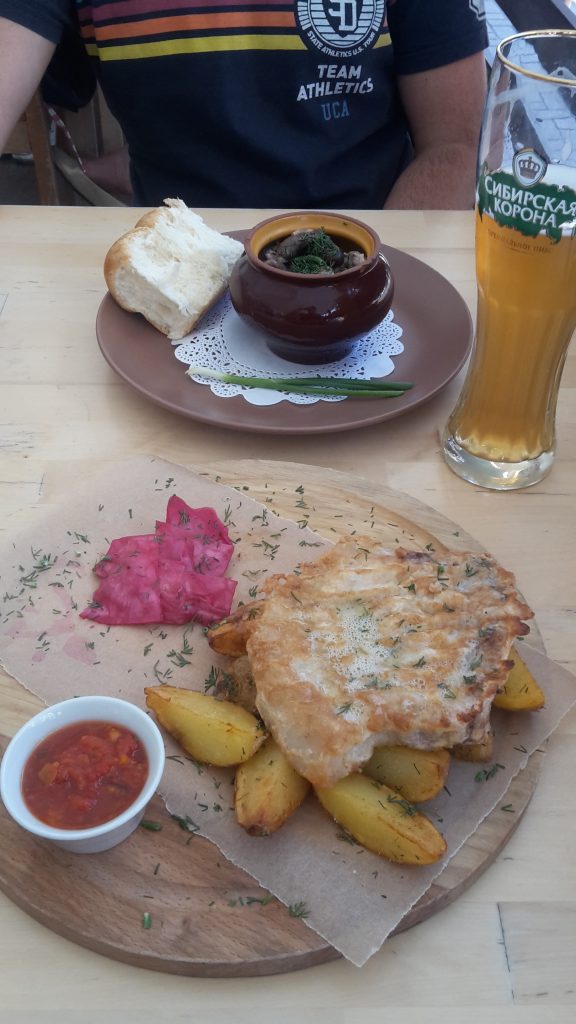
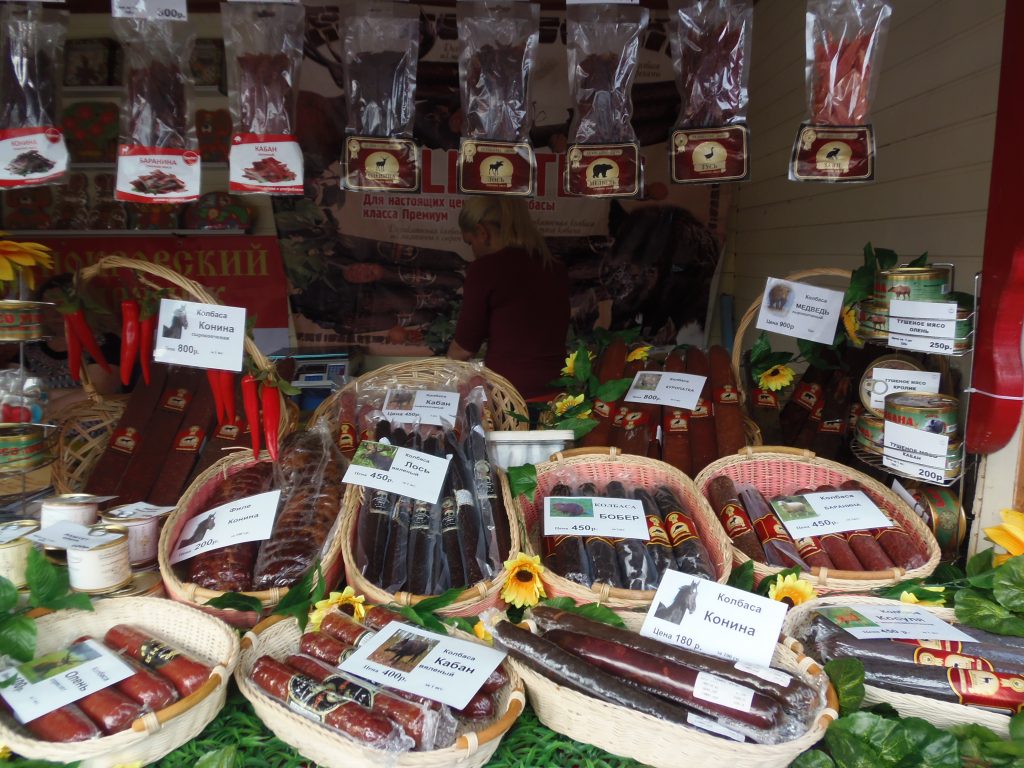
Apart from that, pizzas weren’t good (they lacked tomato), fruit which I bought in supermarkets tasted like air, like NOTHING (I even threw away some peaches I had bought), bananas were went off (they arrived from Ecuador), ice creams neither were good, as well as chocolate in general (it lacked sugar)… In short, I love Russia but not its food. I will point out what I did loved: sweets (with so much sugar and juicy), the omul (fish from Baikal Lake, it was like a trout – mackerel) and a fantastic stew which I tasted in Olkhon Island, it contained a great amount of dill and carrot. That was damn good!
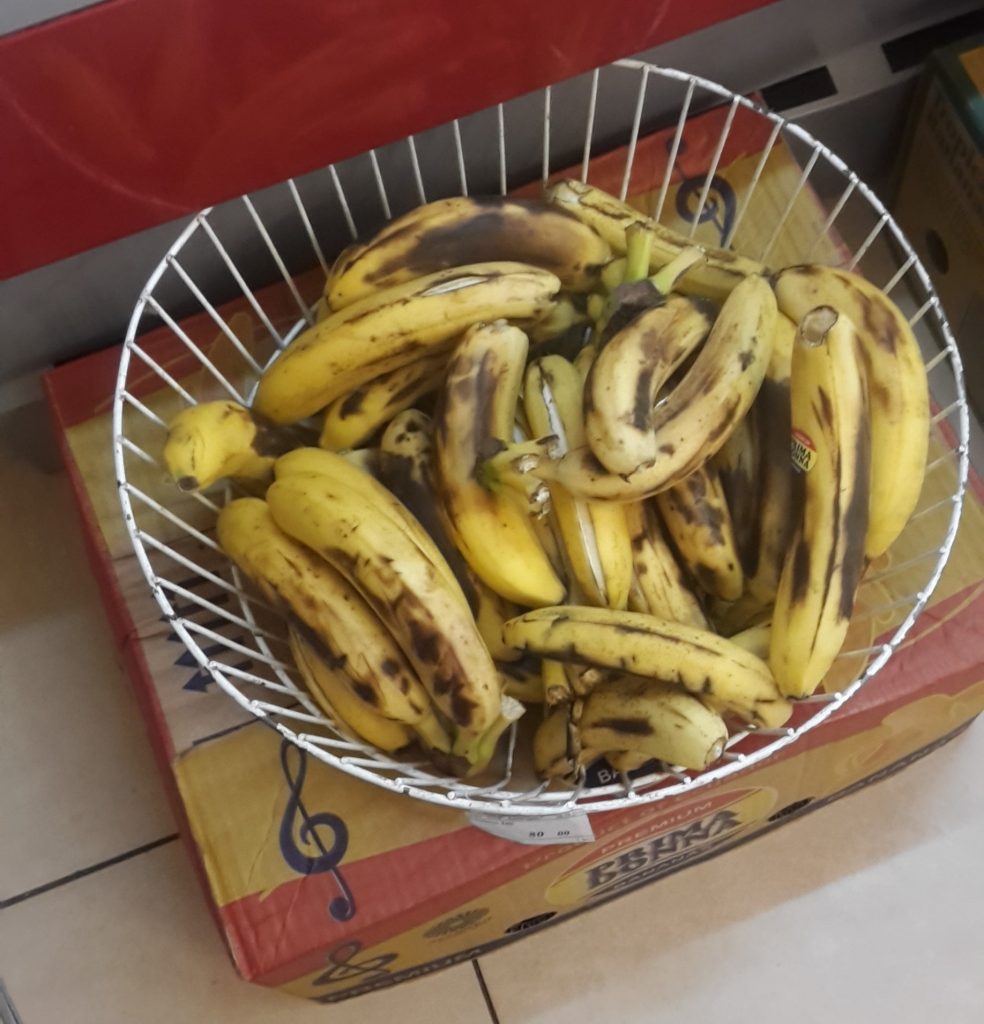 Bananas didn’t look very well.
Bananas didn’t look very well.
I think it was the best stew I’ve ever had, in Khuzhir.
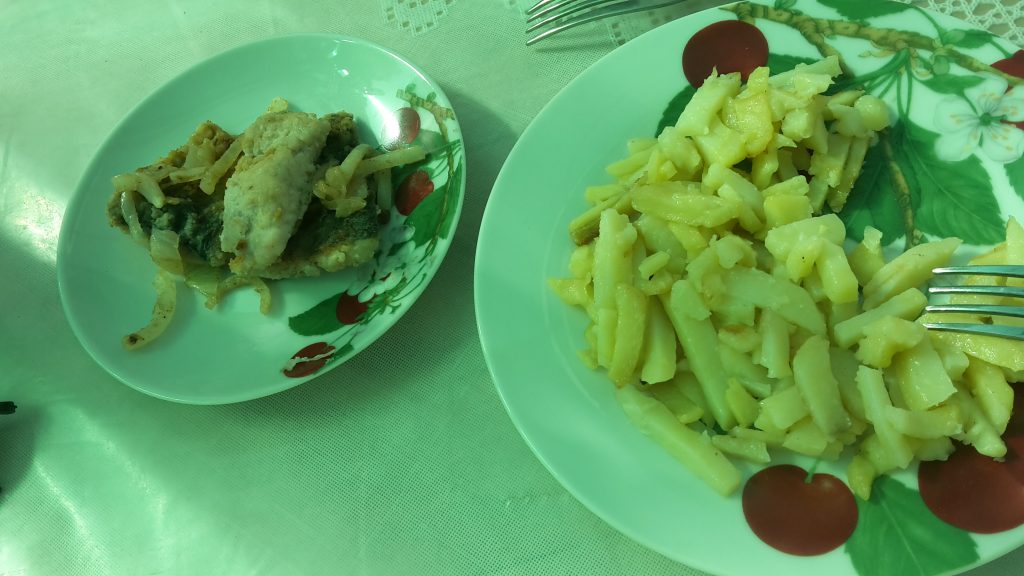
About drink: vodka. I love vodka and I loved seeing prices so low! I bought several bottles and I wish I could have bought more. In Russia, people drink. But don’t exaggerate, at least I didn’t see lots of drunk people. I remember to have seen a few, but don’t fear of going out at night ot catch the tube late because it is not like many people think. I repeat: Russia is safe.
Vodkaholic in Moscow.
By the way, don’t try to ask to have a vodka with something. Vodka is drunk pure, not with soda. The way of having it is drinking it of a single sip and then, eat a pickle. So, ¡na zdorovie!
Russian trains
Without any doubt, trains are the best way to move inside Russia. They are very punctual, comfortable and cheap.You can buy tickets at rzd.ru, the official site of Russian railways (tickets are on sale 45 days before departure approx.), or purchasing tickets in other pages like Russian Rail, Russian Railways, Express to Russia and so on. In these ones, you pay your tickets in advance and they buy it to you when tickets are on sale on rzd.ru, so you don’t have to be on the lookout. Their service is good, although here is a bit more expensive. It might be a good option if you need tickets on a high season journey and specific class; or if you just want to be less worried about what to purchase them before they are out of sale.
When you have your tickets (pdf), check if you must change them for a paper ticket at the station, or if it is enough with that electronic ticket.
In Russia I took different kind of trains:
Sapsan (Сапсан) is the high speed train and it only goes between St Petersburg and Moscow. It’s moderately expensive, but it is very comfortable and fast. Breakfast was very good, with a coffee/tea, sandwich, biscuit…
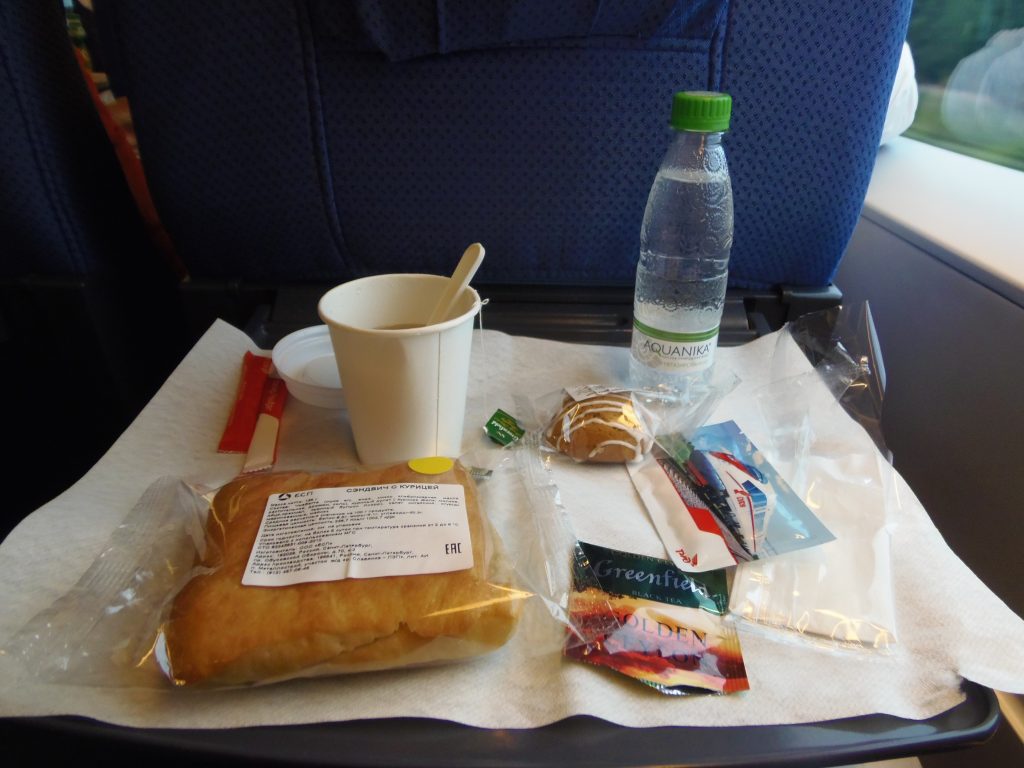 Having breakfast in the Sapsan
Having breakfast in the Sapsan
The other trains: it depends on the class you choose. Not all trains have all classes available.
First class, “CB” or “sv” is almost a comfort, it is a room for only two people, with two lower berths. When you get into, you already have your bed prepared, and a set of slippers, sewing, newspapers, breakfast in a box (bun, chocolate, tea and coffee), in addition you can ask for an omelette, and there is air conditioner.
Second class or kupe, is a room for 4 people, with two upper berths and two lower ones. You have a little table for the four of you, and the sheets on every bed for you to prepare it. Suitcased have to be placed under lower berths and inside them.
Third class or platzkart, is like all the kupes open, with more berths in the corridor. Here you have less privacy, everything is shared, and you can see people sleeping, having lunch… It depends on how lucky you are, you might get a noisy or quiet carriage.
And finally, there are also just seats, not berths, easy chairs that are not very comfortable. I recommend these only for short journeys.
I have to name as well the surburban trains, they are a big carriage with benchs for 2-3 people face-to-face.
Routes
In late August 2015, we took an AirBaltic flight from Barcelona to Riga, where we made a stopover and slept that night. Next morning, we took an airscrew from Riga to St Petersburg. From here, we went to Moscow on the Sapsan. And on our way back, we took a Vueling back to Barcelona.
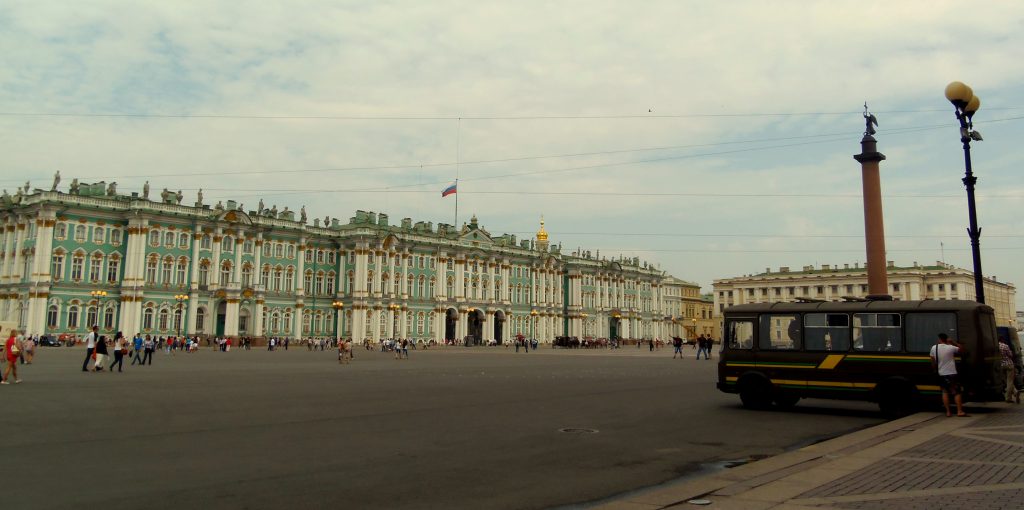 St Petersburg welcomed us like this
St Petersburg welcomed us like this
Our planning was as it follows:
Day 1: flight Barcelona – Riga. Night in Riga.
Day 2: flight Riga – St Petersburg. Arrive early in the morning. Day in St Petersburg.
Day 3: St Petersburg: Tsarkoye Selo (Pushkin) and Peterhof.
Day 4: Sapsan train St Petersburg – Moscow. Arrive early in the morning. Day in Moscow.
Day 5: Sergiev Posad and Rostov.
Day 6: Moscow.
Day 7: flight Moscow – Barcelona.
Here you can find the links to our articles:
#RUSSIA The Russian heart: 1. ST PETERSBURG
#RUSSIA The Russian heart: 2. TSARKOYE SELO (PUSHKIN) AND PETERHOF
#RUSSIA The Russian heart: 3. SERGIEV POSAD AND ROSTOV
#RUSSIA The Russian heart: 4. MOSCOW
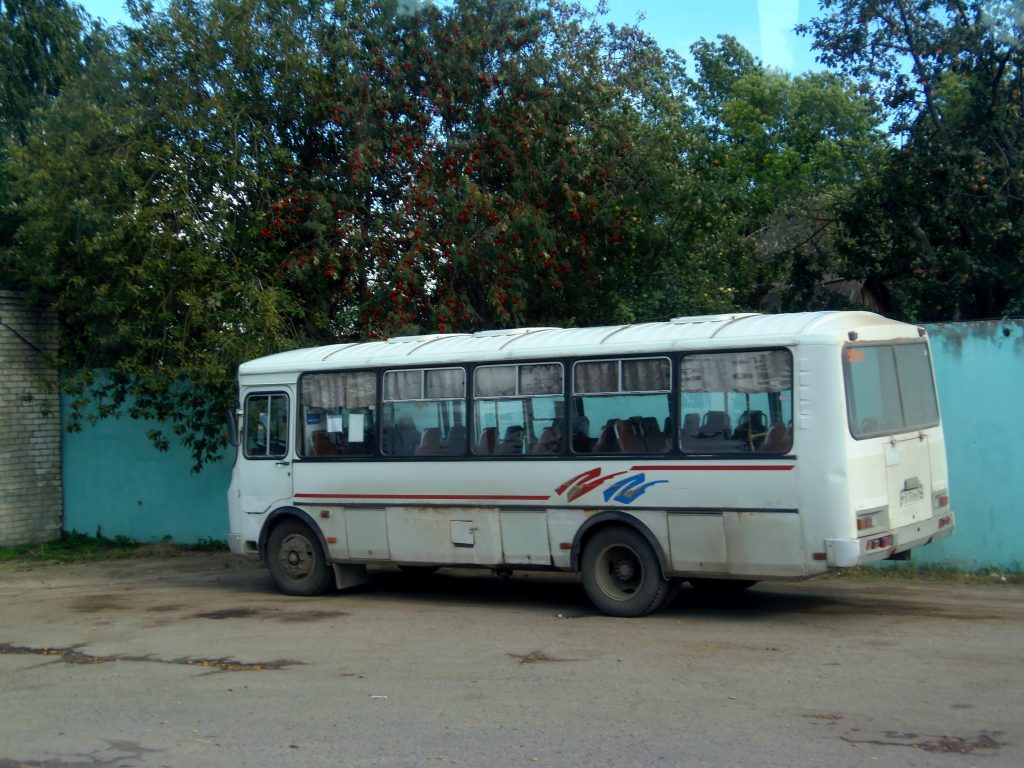 Pereslavl-Zalesskiy bus station.
Pereslavl-Zalesskiy bus station.
The following year, in August 2016 I restarted my path from Moscow to set out on my “Transiberian route”, although it was indeed the transmongolian until Beijing, not until Vladivostok. I visited the cities of Kazan, Ekaterinburg, Tyumen, Tobolsk, Novosibirsk, Tomsk, Irkutsk, Khuzhir and Ulán Udé in Russia; besides Mongolia and China.
You can reed my transiberian stories here:
#TransiberianRoute 0. Introduction.
